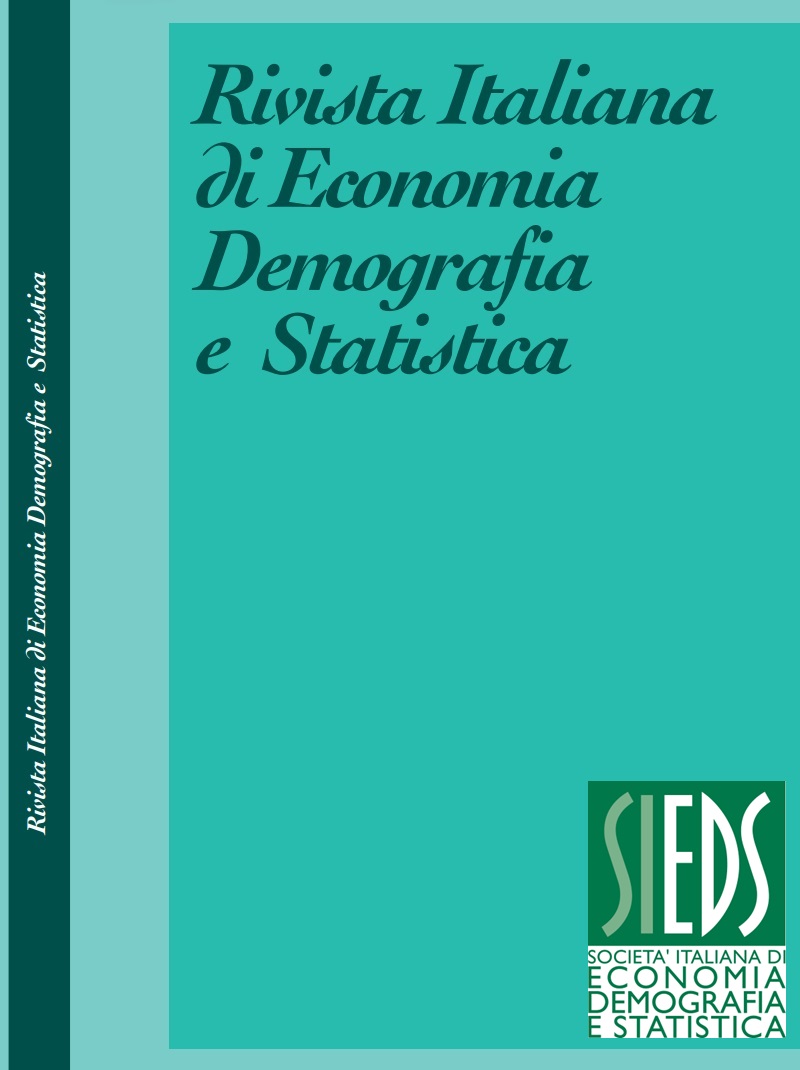Measuring the ageing of Italian population with composite indicators using municipal data from the decennial population censuses
Abstract
The aim of this study is to summarise the measures of Italian population
ageing obtained from the results of the 2001, 2011 and 2021 decennial censuses by
composite indicators. The goal is to analyse similarities and differences in the
ageing behaviour of Italian municipalities in an attempt to identify trends over 20
years through the ‘pictures’ taken in Italy with the Censuses. The 2001 Census was
the last one carried out in the traditional way, door-to-door with enumerators
handing out paper questionnaires to all households. In 2011, some innovations
were introduced: the mailing of questionnaires, the possibility of web-filling and
the intervention of the enumerators only in the final phase of non-response
recovery. Since 2018, the Census, carried out annually on a sample of
municipalities and households, has become continuous, i.e. Permanent. Although
the survey is a sample survey, the results are referred on the entire population,
thanks to the integration of the data collected in the field with those in the available
archives. Some indicators concerning the structure of the population are
considered. The territory considered is the municipal territory as of 2021. In order
to perform a temporal and spatial analysis highlighting differences and similarities
between the municipalities, the composite Adjusted Mazziotta Pareto Index
(AMPI) is used. A classification of the municipalities is then performed using the
CHAID (Chisquared Automatic Interaction Detector) classification tree,
incorporating geographic-territorial-demographic elements into the analysis.
Finally, a focus on territories that can be considered case studies: the metropolitan
city of Naples and the municipality of Naples.
Downloads
Published
Issue
Section
License
Copyright (c) 2023 Gennaro Di Fraia, Valeria Quondamstefano, Mariangela Verrascina

This work is licensed under a Creative Commons Attribution 4.0 International License.



